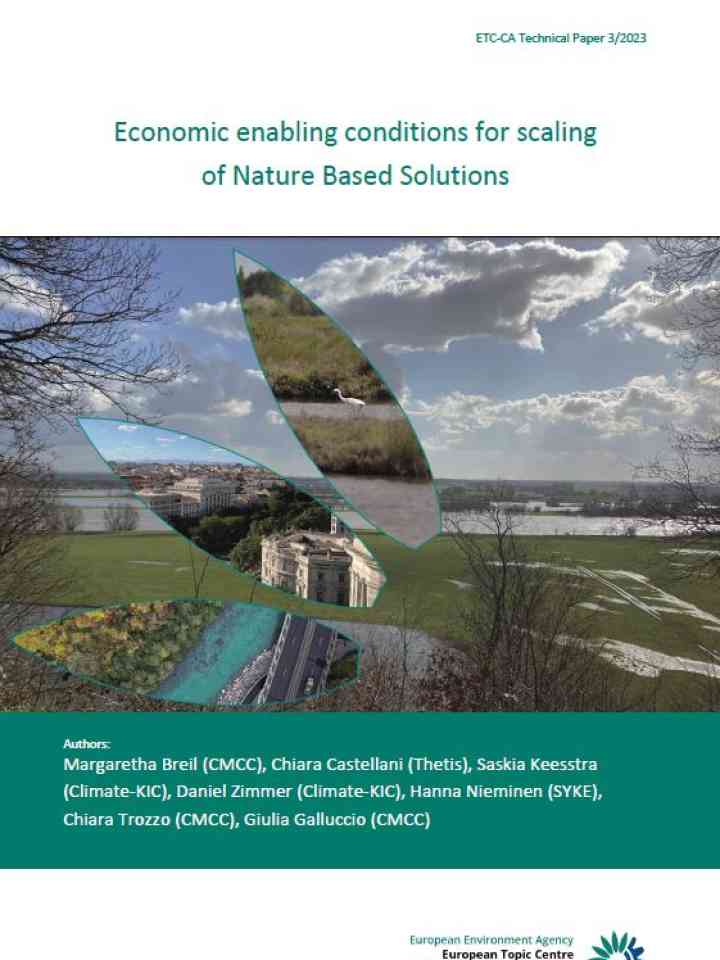Economic enabling conditions for scaling of Nature Based Solutions
The present paper analyses scaling aspects for Nature Based solutions (NBS) focusing on the economic and social characteristics of their implementation. The analysis is based on a discussion of key concepts related to the social and economic characteristics of NBS and applies this lens of interpretation to study how these aspects roll out in a selection of case studies previously presented in two technical papers, published in 2021 and 2022: the first of these papers by Veerkamp et al. (2021) had developed a framework for NBS assessments building on key success factors and limitations and applied it to a range of different European NBS case studies. The second paper by Martire et al. (2022) provided a framing of the concept of scaling for NBS and examined a small selection of the previous case studies on the background of the related framework.
The present paper discusses the socio-economic conditions which can enable or prevent upscaling and particularly focuses on the characterization and distribution of benefits generated by NBS. The objective of this paper is to exemplify this analysis on six selected case studies selected from those previously analised, assessing how socio-economic conditions impact the potential for large-scale implementation of NBS.
Explore further

